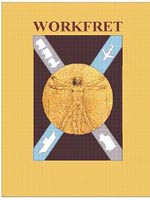Customer: EU, DG VII, Transport Programme
Duration: January 1997 – January 1999
The primary goal of the WORKFRET project is to analyse existing working cultures and organisational/managerial structure chara-cteristics in European freight transport systems, examine implications of the integration of new technology, apply technology assessment tools and suggest policy measures to establish desirable effective and efficient anthropocentric systems in the freight transport sector.
Main objectives of the WORKFRET project :
• To contribute to the development of an efficient freight transport system in Europe taking into account the interests and requirements of the people who actually operate them.
• To identify the characteristics of existing working cultures and organisational/ managerial structures in relation to the intermodal
• transport systems, interfaces between the various transport systems, potential problems and conflict areas/ barriers of any kind.
• To identify organisational changes and barriers to change.
• To describe alternative “desired structures” and their characteristics.
• To define systems’ strengths and weaknesses and to propose and evaluate alternative strategies for the exploitation of new opportunities.
• To propose measures for higher efficiency and enhanced safety in transport.
• To propose strategies and methodologies for the appropriate control and monitoring of the organisational and socio-economic changes under consideration.
• To propose policies at European Union, National, Employers’ Organisations, Trade Union level which will contribute to the creation of “desired structures” such as efficient effective and anthropocentric systems.
• To disseminate the concepts developed and the results to all actors involved.
Role of TREDIT:
– Technology assessment and analysis of impacts of developments in intermodal freight transport
– Survey of new logistics and production systems and analysis of their impacts
– Review of working cultures in freight transport
– Cost-benefit analysis and analysis of impacts in working cultures
– Case studies coordination and conduct of the Thessaloniki pilot
– Delphi method organisation and implementation
– Quality assurance and control
– Project management

